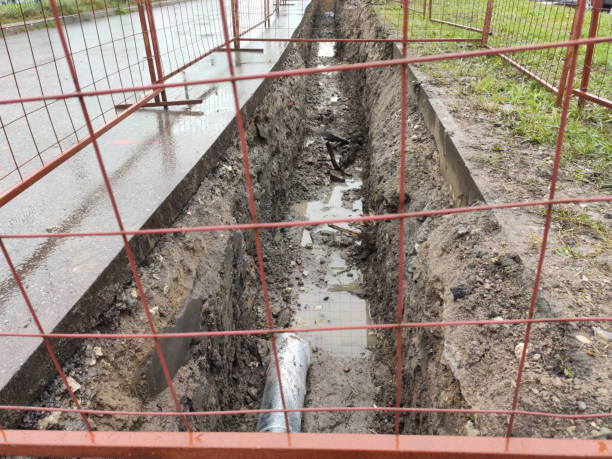
TRENCHING IS A MAJOR SAFETY HAZARD TO EMPLOYEES.
As a trenching collapse lawyer in New York City, we know there are many reasons why employers are not following the required Department of Labor standard when it comes to trenching. Many jobs required that a construction crew dig a trench of varying lengths and depths to accommodate a variety of functions. This being said, a trench is a dangerous place for you to be working and without the proper precautions, can even be fatal. For a trench collapse lawyer New York City, we want to make sure that if you are injured because of negligence in following the proper OSHA standards, your employer can be held liable.
WHY TRENCHING IS A MAJOR CONSTRUCTION ACCIDENT RISK
From the perspective of a trenching collapse lawyer in New York City, we have seen many cases when a trench collapsed on the employee, doing major damage to their health. This kind of a collapse can even result in death. The reality is that soil is heavy. A single cubic foot of soil can weigh 114 pounds, and a cubic meter can weigh as much as 3,747 pounds or the equivalent of a small car. In the event of a collapse, the weight of the soil can prevent a person from breathing, and suffocation can occur in under three minutes.
WHAT ARE OSHA REQUIREMENTS WITH REGARD TO TRENCHING?
OSHA, the Occupational Safety and Health Administration, has very clear guidelines that all employers are required to follow when trenching. It is these guidelines that your trench collapse lawyer in your city relies on to show negligence in the event of a trench collapse. Some of these guidelines include provisions like:
TRENCHES LESS THAN FIVE FEET DEEP
In trenches that are less than five feet deep, OSHA typically does not require protective systems. However, the caveat is that if a competent person sees risks of a potential collapse, the same systems applied to a deeper trench must be engaged. Failure to do this would be what a trench collapse lawyer in your city would call negligence.
TRENCHES BETWEEN FIVE AND 20 FEET DEEP
In a trench that is up to 20 feet deep, OSHA required measures that include:
- Shoring and Sheeting
- Shielding
- Sloping
- Benching
The most important part is that for any system, a registered professionally trained engineer must design the system to prevent a trench from collapsing on the workers.
The Cakani Law Firm, we know accidents happen. Contact our personal injury attorneys to learn how we can help you secure the compensation to which you are entitled to get back on your feet.
